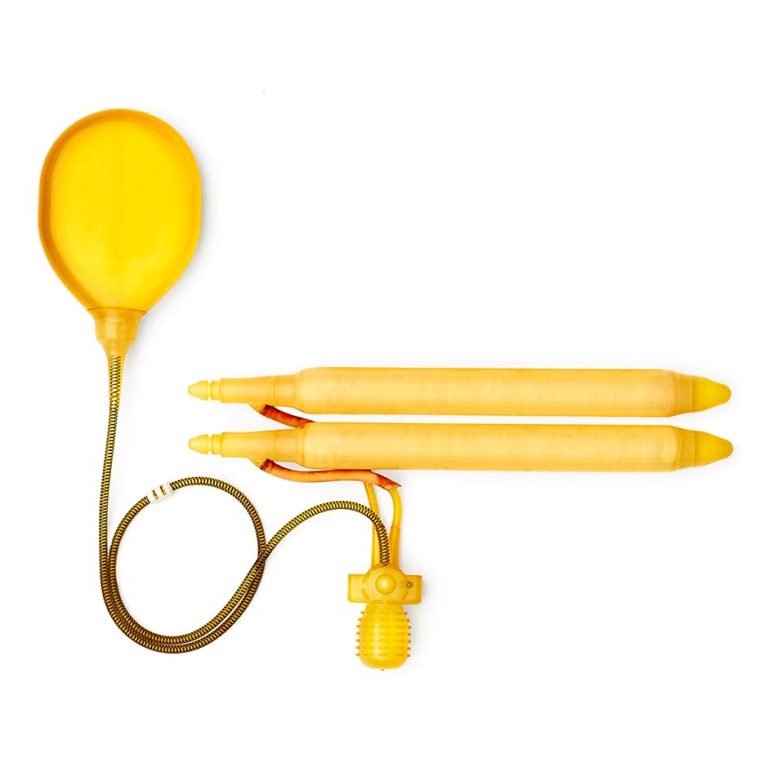Penile Implants in Turkey
Trusted Penile Prosthesis Implant Specialist serving in Turkey, Multiple Cities ( Istanbul and Antalya)
Penile implant surgery packages with clear cost and complications risk protection. Includes surgeon, anesthesia, prosthesis.
Three-piece inflatable implants use a fluid-filled reservoir implanted under the abdominal wall, a pump and a release valve placed inside the scrotum, and two inflatable cylinders inside the penis. To achieve an erection, you pump the fluid, which is salt water, from the reservoir into the cylinders.

Penile implants are devices placed inside the penis to allow men with erectile dysfunction (ED) to get an erection.
Penile implants (also called a penile prosthesis) are a surgical treatment option for erectile dysfunction. These procedures involve the insertion of malleable or inflatable rods into the penis.
Achieve Confidence and Improved Sexual Function with Penile Implants
Discover the Revolutionary Solution for Erectile Dysfunction and Peyronie’s Disease.

Don’t let erectile dysfunction or Peyronie’s disease hold you back any longer.
Contact us today to take the first step toward the enhancement you deserve.
Penile Implants Turkey Price
The “package price” of penile implants in Turkey is heavily discounted. Penile implant cost with package (includes hospital and hotel stay for recovery) pricing typically runs between $8,000 and $11,500 and includes all associated fees.
3 Pieces AMS 700™ LGX Penile Implant – €9,500
- Qualified Specialist Urology Surgeon
- 3 Pieces AMS 700™ LGX Penile Implant
- Fully Accredited Premier Andrology Clinics
- Pre & Post Procedure Consultations
- Dedicated Clinic Coordinators
- 1 Night Hospital Stay & 5 Nights Hotel Stay
- Airport Pickup & Dropoff & Clinic Transfers
- Surgeon, Hospital & Anaesthetist Fees Included
3 Pieces Rigicon AX, Coloplast, AMS Penile Implant – €9,000
- Qualified Specialist Urology Surgeon
- 3 Pieces Rigicon AX, Coloplast, AMS Penile Implant (Preferrable)
- Fully Accredited Premier Andrology Clinics
- Pre & Post Procedure Consultations
- Dedicated Clinic Coordinators
- 1 Night Hospital Stay & 5 Nights Hotel Stay
- Airport Pickup & Dropoff & Clinic Transfers
- Surgeon, Hospital & Anaesthetist Fees Included
3 Pieces Rigicon Infla 10 AX Penile Implant – €9,000
- Qualified Specialist Urology Surgeon
- 3 Pieces Rigicon AX, Coloplast, AMS Penile Implant (Preferrable)
- Fully Accredited Premier Andrology Clinics
- Pre & Post Procedure Consultations
- Dedicated Clinic Coordinators
- 1 Night Hospital Stay & 5 Nights Hotel Stay
- Airport Pickup & Dropoff & Clinic Transfers
- Surgeon, Hospital & Anaesthetist Fees Included
3 Pieces Coloplast
Titan®Touch
Penile Implant – €9,000
- Qualified Specialist Urology Surgeon
- 3 Pieces Rigicon AX, Coloplast, AMS Penile Implant (Preferrable)
- Fully Accredited Premier Andrology Clinics
- Pre & Post Procedure Consultations
- Dedicated Clinic Coordinators
- 1 Night Hospital Stay & 5 Nights Hotel Stay
- Airport Pickup & Dropoff & Clinic Transfers
- Surgeon, Hospital & Anaesthetist Fees Included
3 Pieces Rigicon Penile Implant - €8,500
- Qualified Specialist Urology Surgeon
- 3 Pieces Rigicon Penile Implant
- Fully Accredited Premier Andrology Clinics
- Pre & Post Procedure Consultations
- Dedicated Clinic Coordinators
- 1 Night Hospital Stay & 5 Nights Hotel Stay
- Airport Pickup & Dropoff & Clinic Transfers
- Surgeon, Hospital & Anaesthetist Fees Included
Location: Istanbul & Antalya,Turkey Availability: Yes
What types of penile implants are available?
There are three main types of penile implants: inflatable, semi-rigid, and malleable.
How effective are penile implants?
Penile implants are highly effective in treating erectile dysfunction. The success rate for inflatable implants is over 90%, while the success rate for semi-rigid and malleable implants is about 80%.
How long do penile implants last?
The lifespan of a penile implant can vary depending on the type of implant and the individual’s lifestyle. Inflatable implants typically last for about 8 to 12 years, while semi-rigid and malleable implants can last for up to 15 years.
Does the implant affect sensation?
The implant does not affect the sensation in the penis or the ability to achieve an orgasm.
How is the surgery performed?
The surgery is typically done under general anesthesia and takes about 45 minutes to an hour. During the procedure, the surgeon will make an incision in the penis or scrotum and insert the implant.
What is the recovery time after surgery?
Recovery time can vary depending on the individual and the type of implant, but most men can return to normal activities within 4 to 6 weeks.
Here is the full rundown of what the process of a surgical procedure (penile implants) might involve, day by day:
*Day 1:*
*Pre-op consultation:* The patient meets with the surgeon and anesthesiologist to discuss the surgical procedure, review the patient’s medical history, and answer any questions.
Pre-admission testing: The patient undergoes any necessary testing, such as blood work or an electrocardiogram (ECG), to ensure that they are healthy enough for surgery.
Pre-op instructions: The patient receives instructions on how to prepare for surgery, such as what to bring to the hospital, how to fast before the procedure, and what medications to take or avoid.
*Pre-op consultation*, also known as a pre-operative consultation or pre-surgery consultation is a meeting between a patient and a healthcare provider, typically a surgeon or anesthesiologist, to discuss and prepare for a surgical procedure. During the pre-op consultation, the healthcare provider will review the patient’s medical history, current medications, allergies, and any other relevant information to ensure that the patient is healthy enough for surgery and to minimize any potential complications. The healthcare provider will also explain the details of the surgical procedure, including the risks and benefits, and answer any questions the patient may have. The pre-op consultation is an important step in the surgical process and helps to ensure that the patient is fully informed and prepared for the procedure.*
*Day 2 / Day of surgery:*
*Arrival at the hospital:* The patient arrives at the hospital and checks in at the admitting desk. They may be asked to change into a hospital gown and may be given a sedative to help them relax. *Someone from our care team will be assisting you* with transportation and provide support during this process.
*Anesthesia:* The anesthesiologist administers the anesthesia, which may be general anesthesia (where the patient is fully asleep) or regional anesthesia (where the patient is numbed in a specific area).
*Surgery:* The surgeon performs the surgical procedure. The surgery duration is 90 minutes.
*Recovery:* The patient is taken to the recovery room and monitored until they are awake and stable.
*Day 3 / Day after surgery:*
Hospital stay: The patient may stay in the hospital for a day (usually 1 day) to recover and receive additional care, such as pain management or physical therapy.
Discharge: When the patient is ready to go home, they will receive instructions on how to care for themselves and manage any post-surgical pain or discomfort.
*Day 4 – 5 – 6 Taking prescribed medications as directed, following any special wound care instructions, and getting plenty of rest in the hotel room.*
*It is important for the patient to follow the instructions and recommendations of their healthcare provider after leaving the hospital to ensure a smooth and successful recovery. This may include taking *prescribed medications* as directed, following any special *wound care* instructions, and getting *plenty of rest.* It is also important to follow up with the healthcare provider as directed for any necessary follow-up appointments or check-ins.
It is not uncommon for patients to receive specific instructions for dressing the surgical site, such as the penis area, to help *protect the wound and promote healing*. It is important to follow these instructions carefully and to *contact the healthcare provider* if there are any concerns or if the dressing becomes wet or dirty.
It is also important to *arrange transportation and accommodations* as needed after leaving the hospital. It may be helpful to have *someone from our care team to assist* with transportation and provide support during the recovery period.
*Day 7 Follow-up appointments:*
The patient may need to return to the hospital or visit their healthcare provider for follow-up appointments to check on their progress and address any concerns before he flies back home.
*Recovery from a surgical procedure can vary depending on the type of procedure and the patient’s individual health and healing process. It is important for patients to follow the instructions and recommendations of their healthcare provider to ensure a smooth and successful recovery.*
*Some general tips for recovering from a surgical procedure include:*
Follow the aftercare instructions provided by the healthcare provider, including any necessary wound care or follow-up appointments
Take prescribed medications as directed
Get plenty of rest and avoid strenuous activities until cleared by the healthcare provider
Recommend that patients avoid sexual intercourse for a certain period of time (30 Days) after a surgical procedure to allow for proper healing.
Eat a healthy and balanced diet to support the healing process
Avoid smoking and alcohol consumption, as they can interfere with healing
Follow any specific activity or activity restrictions as directed by the healthcare provider
*Remarks;*
*Dedicated patient coordinators are professionals who assist patients throughout the process of a medical procedure, from the initial consultation to post-procedure follow-up care. They may work for a hospital, a medical practice, or a healthcare organization, and their primary role is to ensure that the patient has a positive and seamless experience throughout their medical journey.*
*Some of the tasks that a dedicated patient coordinator may be responsible for include:*
Coordinating the scheduling of medical appointments and procedures
Providing information and answering questions about the medical process
Assisting with the completion of necessary paperwork and documentation
Arranging for transportation, accommodations, and other logistics
Providing support and guidance to the patient and their family
Acting as a point of contact for the patient throughout the medical process
Dedicated patient coordinators can be a valuable resource for patients, helping to navigate the complexities of the healthcare system and providing support and guidance throughout the medical journey. They can also help to reduce stress and anxiety for the patient and their family by handling the logistical details and coordinating care.
Penile Implants in Turkey Reviews










